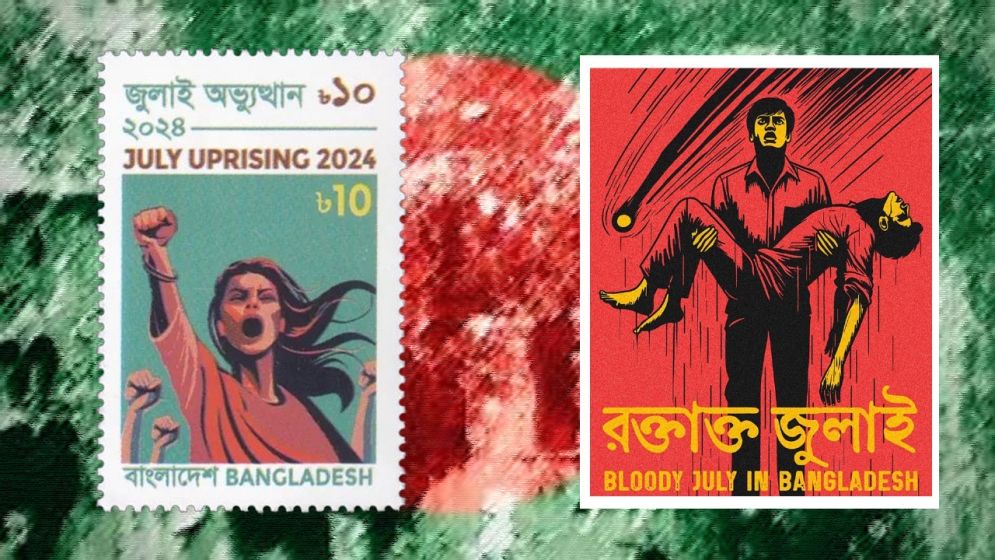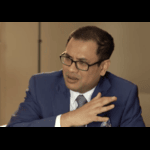No status quo can’t mute the screams of July uprising

There is justified outrage–fueled by political ineptitude, legal inertia, and social neglect–about how the custodians of July managed the aftermath.
We have every right to feel betrayed. Martyrs and victims alike deserved so much more.
Yet, amid the rage, we cannot let institutional failures overshadow the raw, unfiltered horror that unfolded: bleeding bodies, charred remains, mass graves, blindings, dismemberments.
These are not embellishments; they are irrevocable facts engraved in our collective consciousness–the purest truth of July.
History teaches us that the flame of martyrdom often serves as both a compass and a reckoning. In Bangladesh, the July–August 2024 student uprising drew stark parallels with the 1971 Liberation War–when the martyrdom of intellectuals laid the groundwork for a national resurrection.
Both periods remind us that sacrifice and state-building are intertwined threads in a nation’s psyche.
To conflate our justified rage toward mismanagement with the very essence of July would be a grave injustice.
July does not belong to parties or bureaucratic narratives–it belongs to those who died, to survivors whose voices were silenced, and to the unyielding moral imperative they be given justice.
As long as we remain faithful to their sacrifice, and insist on transparent truth commissions, reparations, prosecutions where due, and historical inclusion–such as integrating their stories into textbooks–we ensure that the memories of July endure.
Anything less turns remembrance into rhetoric.
Ultimately, the test of our post-July politics will not be in grand gestures or speeches. It will be in whether we absorb the lessons–ensure accountability, build inclusive institutions, and respect the sanctity of life.
We must honor July not just with words, but through the hard, sometimes painful work of state rebuilding.
July's legacy demands nothing less.

Post-uprising truths
If over two thousand lives lost in July–August don’t prompt sweeping political reform, I don’t know what will?
In this country, human sacrifice is the only catalyst for price —and its scale registers on a political ledger. But there's a price to this indifference–a price no one in power seems poised to pay.
Local politicians, insulated and calculating, treat death as a statistic–essential background noise to the drama of power.
Their apathy doesn’t just insult the dead; it mortgages the future. Every abandoned victim deepens the deficits of trust and legitimacy of the state. As history shows, those costs compound.
In 1990, the fall of General Ershad came at a casualty count barely touching thirty. Still, it toppled an autocrat.
Fast forward 30 years, and the “Long July” crisis exacted a body count in the low thousands–estimates range from 850 to well over 1,400, according to United Nations and OHCHR findings .
Yet here we sit, leadership unchanged.
The arithmetic of dread is brutal: one life snuffed in 1990 bought a regime fall; now, thousands have perished–and the regime almost stood firm.
So, the calculus is clear: costs escalate in silence, and each opportunity lost makes the next reckoning that much more ruinous.
Crucially, the audience has changed. In 1990, pro-democracy fervor barely pierced the capitals. Today, even remote villages know the names of those who died–their faces immortalized online, their stories shared and archived.
This awareness strengthens public memory and strengthens accountability. No longer can politicians smile past the camera and dismiss the carnage as collateral.
History will not grant leniency for ignoring July’s lessons. If those who stood in the way of justice–those who silenced medical testimonies, blacked out communications, or blamed the victims–remain unaccountable, the stage is set for far greater upheaval next time.
Because, failure to act won’t just insult the dead–it endangers the living.
Politicians can continue to treat human lives as dispensable. But with each ignored atrocity, they issue a silent admission: our democracy is worth its living–and dying–proof.
—
Nayel Rahman is a political analyst

